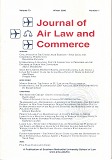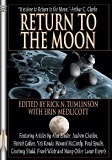FAQ #16: If you can't give figures, now, proving the profitability of the end uses of Lunar land, how could anyone raise big money for Lunar land?
That's "cart before the horse" thinking, -- and Lunar Land Claims Recognition is not at all about raising money for Lunar land. There is no Lunar land to buy.
This is about raising money for the development of affordable space transport and the money doesn't have to be raised all at once, just enough to keep the experts working hard on solving the next piece of that puzzle. Only when safe, reliable Earth-Moon transport has actually been developed, and launch costs have been brought low enough that even the accountants think a settlement could make a sufficient profit by selling land, will it be time for anyone to try to raise the big money to actually establish a permanent Lunar settlement.
If they succeed in creating a functioning space line and settlement, they then get ownership of the land and can try selling it. Only then (perhaps a decade after the law was enacted?) do they have to make projections about the future end uses of the land. Only then, when the cost of transport is known, can they be expected to make meaningful financial estimates.
Some land, especially close to the base, will, by then, have identifiable uses and will sell for high prices to prospective entrepreneurs with serious business plans.
Outlying land that still does not have identifiable uses will have to be sold for much less, which is why the settlement is allowed to claim so much of it. But it will still sell to those who take the long view or hope to make a profit by re-selling when the market price rises, as it always does eventually with land. There have been many fortunes made buying and selling "worthless" land that did not yet have identifiable uses and so land buyers have always been very tolerant of that.
It is important that those who establish the settlement be able to sell enough of their land to make back many times their investment in developing or purchasing affordable space transport. But it does not matter at all, now, which of those who buy land from the settlement will get rich on it and which will end up holding the deeds for years for little or no profit.
By creating a space line the settlement will enable many others to start Lunar enterprises. Some will do badly, some will do well. Eventually sources of revenue other than land sales will grow to the point where they can pay the operating expenses, fund the growth of the Lunar base, and still return a profit. Land buyers will sense that potential. But there is certainly no requirement that those later revenue sources be precisely identified now, before the enabling legislation has even been passed.

Questions & Answers about Lunar Land Claims Recognition
Note: The first 25 FAQs below are reprinted from the Space Settlement Initiative ![]() website.
website.
What is the real purpose of enacting a Lunar land claims recognition law?
What does international law say about private property ownership in space?
Can there be property ownership without national sovereignty?
What if other nations refuse to recognize land claims in space?
Why not allow smaller, limited land claims for easier steps than settlement?
Could lunar land really be worth enough money to make a difference?
What conditions should the US set for recognition of a claim?
How much land should a settlement be able to claim... and why?
Are the weaknesses and compromises in this plan likely to be permanent?
Could other sources of revenue be enough without land claims recognition?
What effect would this have on NASA and the aerospace companies?
More FAQs
The FAQs above cover basic questions about Lunar Land Claims Recognition. The following questions address more advanced issues.
If we really went to the Moon in 1969, why aren't we there now?
What were the assumptions before the Outer Space Treaty, (e.g. Robert Heinlein)?
Will changing how NASA works bring the taxpayers back on board?
Could this law force the US to recognize a foreign government's Lunar land claim?
Would Article VI of the Outer Space Treaty prohibit Lunar land claims recognition?
| Back from If you can't give figures, now... to Frequently Asked Questions (FAQs) Back from If you can't give figures, now... to the Space Settlement Institute home page |




